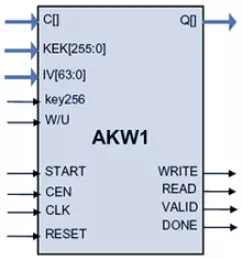AES IP
All offers in
AES IP
Filter
Compare
131
AES IP
from
41
vendors
(1
-
10)
-
IPSEC AES-256-GCM (Standalone IPsec)
- XIP7213E implements the Internet Protocol Security (IPsec) as standardised in RFC4303 and RFC4305.
- The IPsec protocol defines a security infrastrucure for Layer 3 (as per the OSI model) traffic by assuring that a received packet has been sent by the transmitting station that claimed to send it.
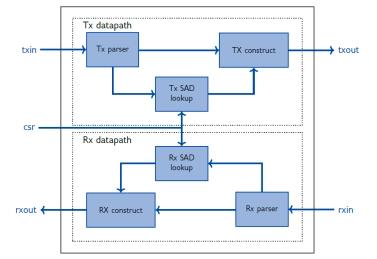
-
P1619 / 802.1ae (MACSec) GCM/XTS/CBC-AES Core
- Small size: From 70K ASIC gates (at throughput of 18.2 bits per clock)
- 500 MHz frequency in 90 nm process
- Easily parallelizable to achieve higher throughputs
- Completely self-contained: does not require external memory. Includes encryption, decryption, key expansion and data interface
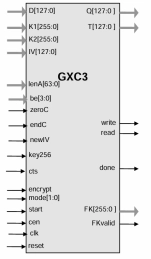
-
AES-SX Secure Core - High-Throughput AES Core with Advanced SCA/FI Protection for Performance-Critical Systems
- The High-Performance AES IP core is a fast, silicon-proven cryptographic engine designed for systems with demanding encryption workloads.
- Built on a 20 S-box parallel architecture, it delivers exceptional AES-128/256 encryption and decryption throughput while supporting standard modes including ECB, CBC, and CTR (excluding GCM, XTS, and CBC-MAC).
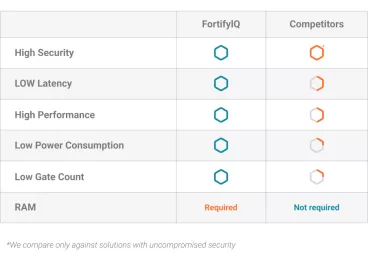
-
AES-XTS Multi-Booster
- The AES-XTS Multi-Booster crypto engine includes a generic & scalable implementation of the AES algorithm making the solution suitable for a wide range of low-cost & high-end applications (including key, tweak, input and output registers and Galois field multiplier).
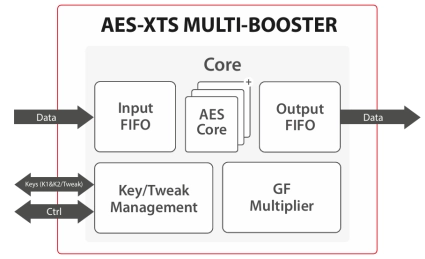
-
AES Mutli-Purpose crypto engine
- The AES Multi-Purpose crypto engine includes a generic and scalable implementation of the AES algorithm and a configurable wrapper making the solution suitable for a wide range of low-cost & high-end applications.
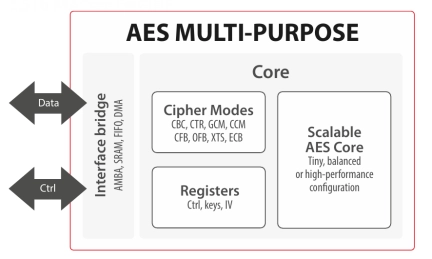
-
AES Multi-purpose crypto engine
- ASIC and FPGA
- Supports a wide selection of programmable ciphering modes based on NIST SP 800-38:
- Masking option available with excellent protection against SPA & DPA
- Context switching
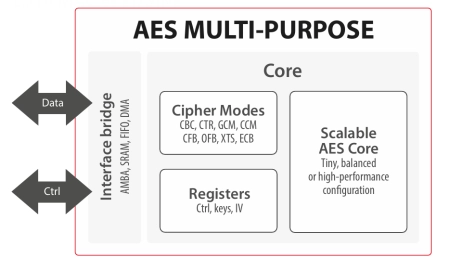
-
AES-GCM Ultra-low latency crypto engine
- The AES-GCM Ultra-low latency crypto engine is targeted for CXL link encryption with an implementation of the AES-GCM algorithm compliant with the NIST SP 800-38D standard.
- The unique architecture enables high throughput while maintaining an optimal resource usage.
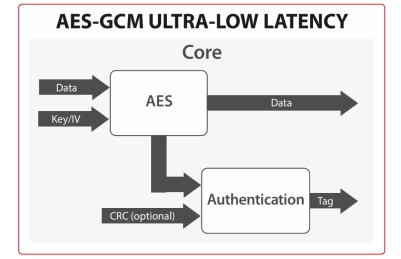
-
AES-XTS Muti-Booster
- The AES-XTS Multibooster crypto engine includes a generic & scalable implementation of the AES algorithm making the solution suitable for a wide range of low-cost & high-end applications (including key, tweak, input and output registers and Galois field multiplier).
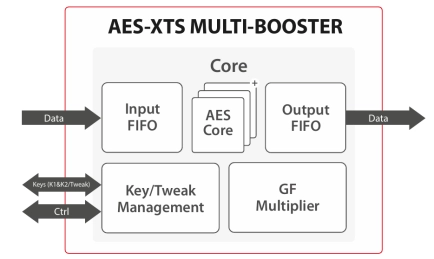
-
AES Engine IP
- The AES engine IP is a high-performance cryptographic engine operates in AES NIST Federal information processing standard FIPS-197.
- It supports AES-ECB AES-XTS mode and 128/256 key-length both encryption/decryption.
- The core engine supports 128/256/512 data width operation.
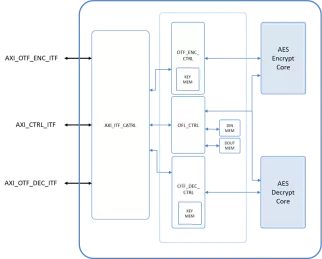
-
NIST AES Key Wrap/Unwrap Core
- Small size: AKW1 starts from less than 8,000 ASIC gates
- Completely self-contained: does not require external memory
- Supports both encryption (wrap) and decryption (unwrap). Encryption-only and decryption only versions available.
- Includes AES key expansion
